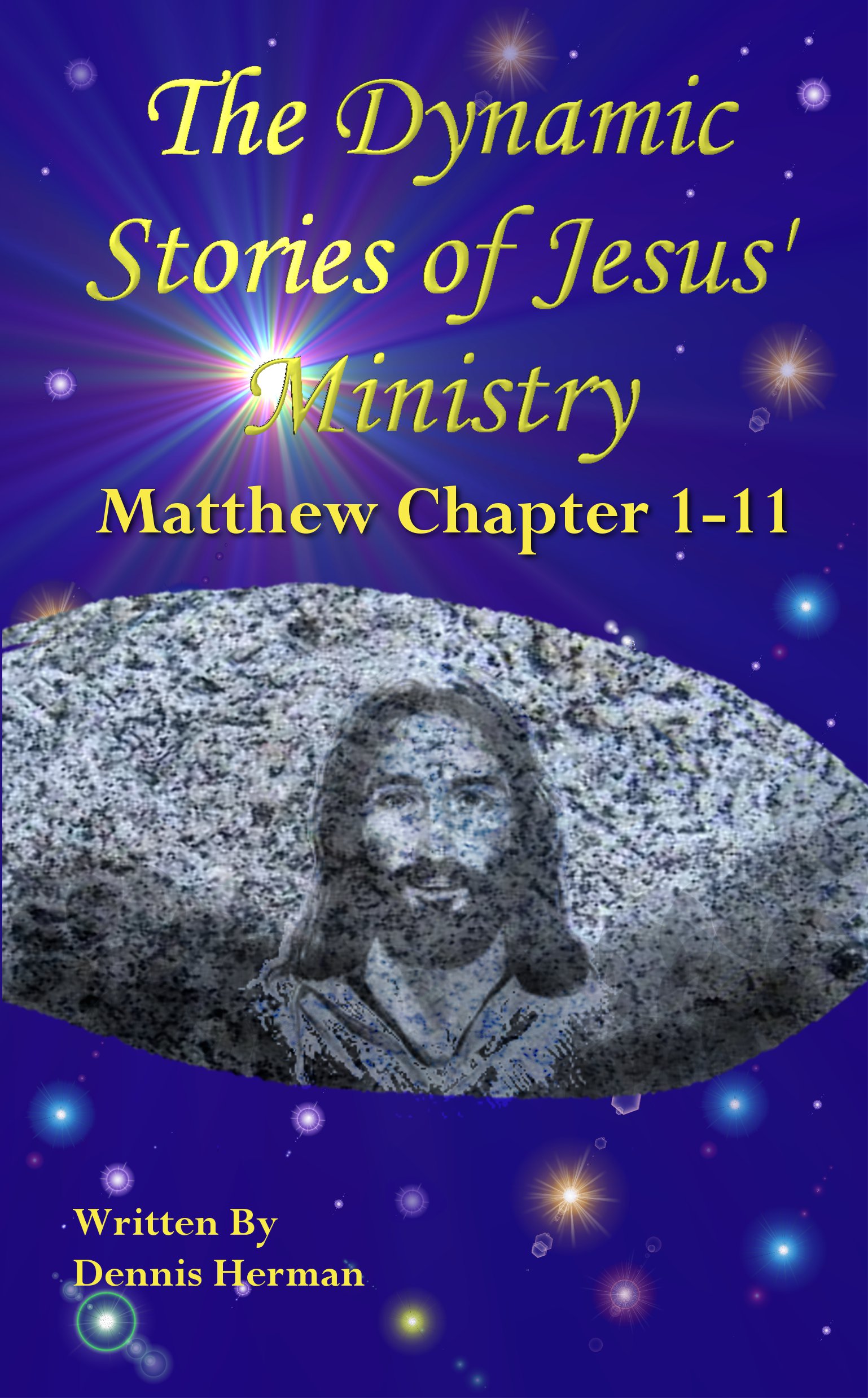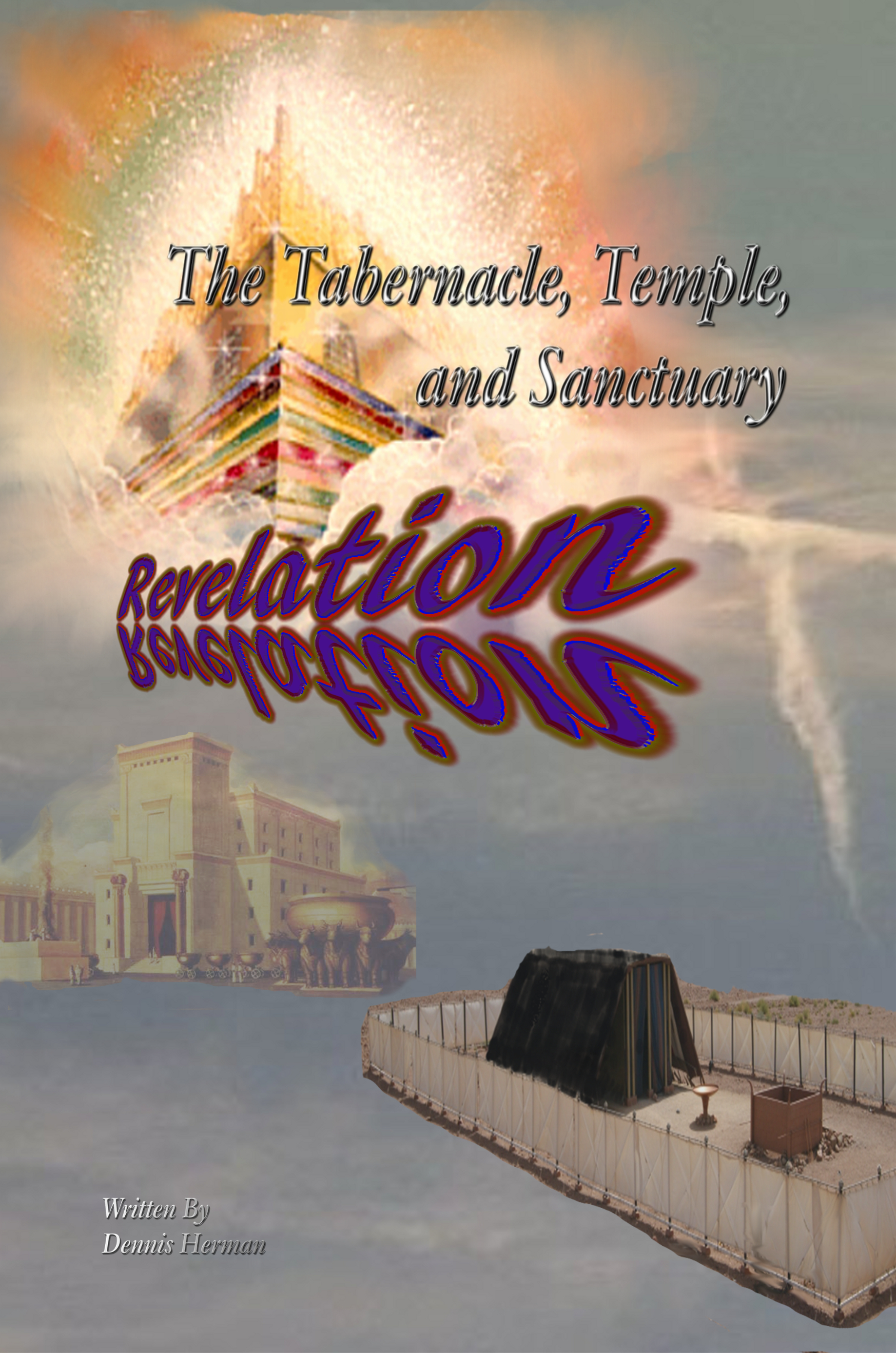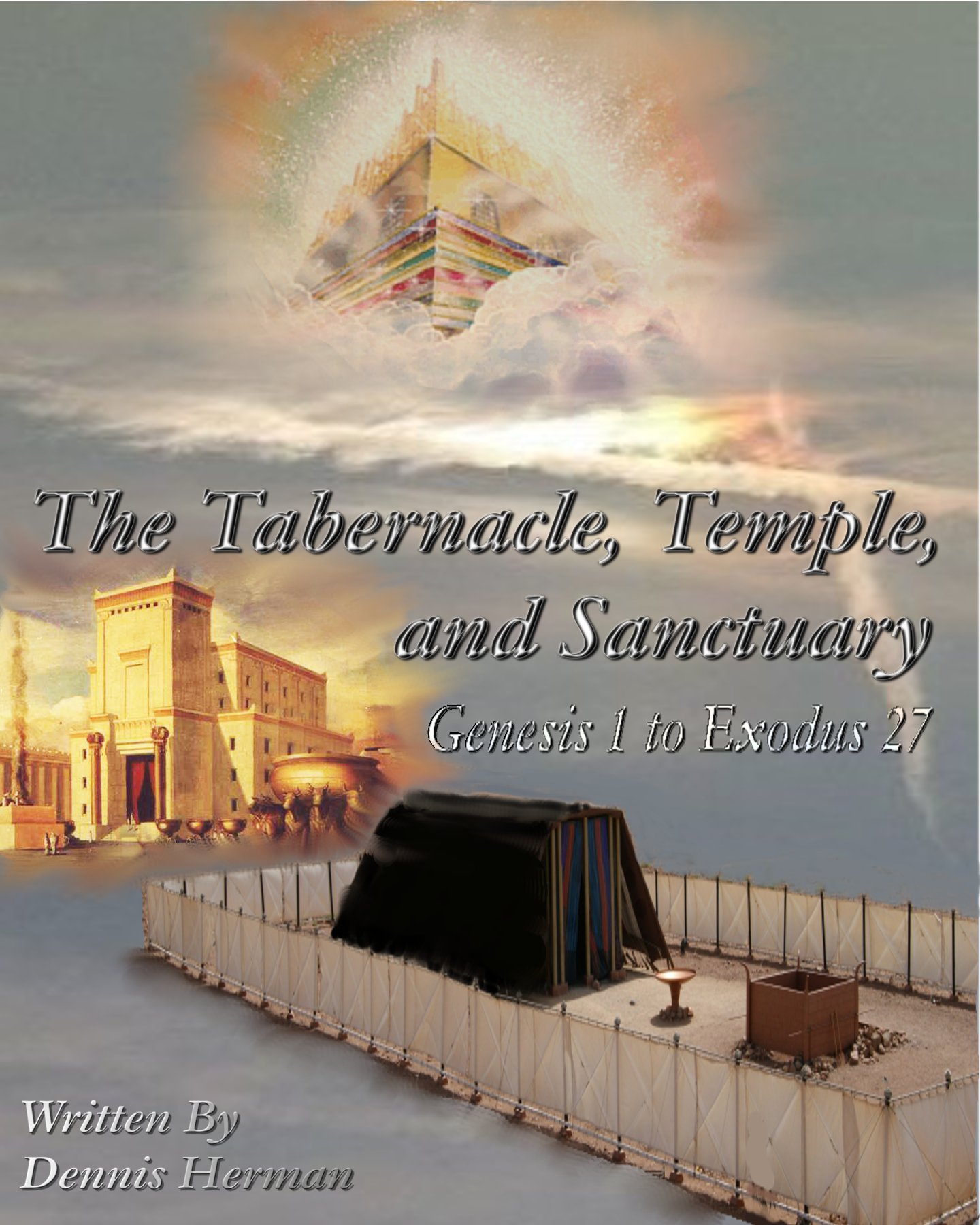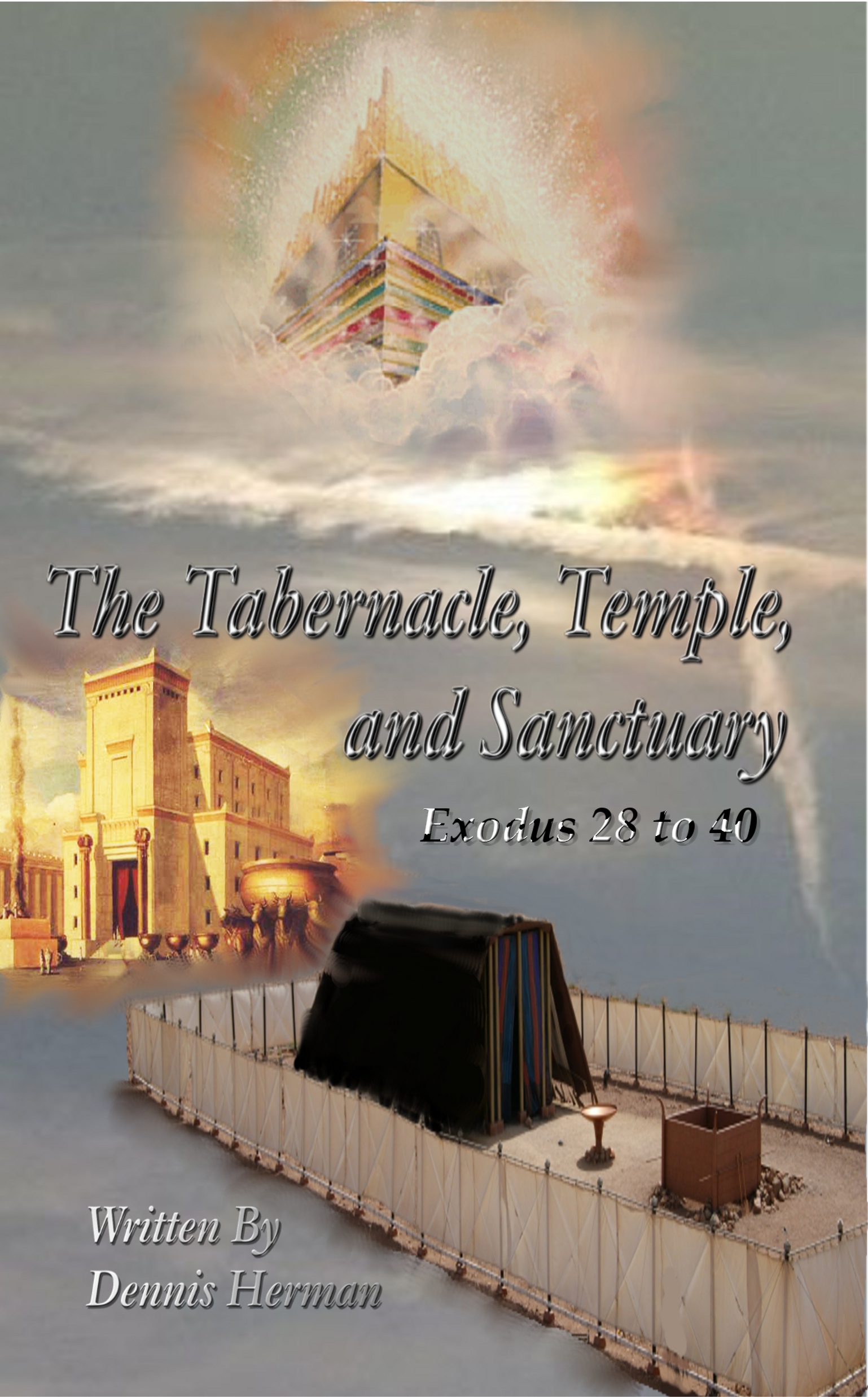Psalms 109:1-7 NLTse O God, whom I praise, don’t stand silent and aloof (2) while the wicked slander me and tell lies about me. (3) They surround me with hateful words and fight against me for no reason. (4) I love them, but they try to destroy me with accusations even as I am praying for them! (5) They repay evil for good, and hatred for my love. (6) They say, “Get an evil person to turn against him. Send an accuser to bring him to trial. (7) When his case comes up for judgment, let him be pronounced guilty. Count his prayers as sins.
This is another prophesy pointing to Jesus on the cross. Since our previous studies have shown how important it is to study multiple chapters it seems logical to study all the chapters recording the fulfillment of this prophecy. The word accuser and other related words his prophecy led us directly to all four gospels.
Jesus on the cross is one of the most important fulfillments of prophecy in the Bible. It teaches many lessons as well as being one of the most important events and stories that lead people to Christ. It’s not only vital but a privilege to study this event.
When we look at the life of the author, David, we see the life of a man with ups and downs. We all have ups and downs in our lives. We run to God when things are rough and drift away when life is good. One thing is for sure, God loved David. He kept remembering the times God came through for him and how God forgave his mistakes.
There is a sort of reverse engineering lesson when we look at David’s life and relationship with God. King David was a symbol pointing to Jesus who was born into David’s family line. Jesus shares s title given to David. Now that we have revelations of Jesus to learn from, we have a role to fill. Jesus earned the role of King by living a perfect life. We have a role in God’s plan of salvation to learn about Jesus’ perfect life, learn from it, and rely on God’s Spirit to work on us – to reach as far as we’re able to grow to become more like Jesus.
I often wonder what David’s life may have been like if he had all the information about Jesus we have today. Think of all the prophecies David wrote about Jesus. How much did he see? What part did those stories play in calling David back to God and keep him close? We have the chance to let Jesus into our lives to make a difference. We also have the gospels and other books in the New Testament to study and learn about Jesus’ life.
David had the Tabernacle with all it’s symbols, but David wanted to build a grand stone temple which distracted from the humble image of the Messiah Jesus came to this world as. Solomon’s grand temple took the attention off symbols pointing to Jesus. The same problem exists today. People don’t want to examine small details making up the personality of Jesus the sinless man who walked this earth, and His role as servant — the Son of God. People want the main details. Often people only want to stress the major points thinking the grander the better, sort of like a competition to see whose serving a more important God. When I see this, I can’t help but see a lack of the intimate personal relationship Jesus yearned for before and at the cross.
For a time darkness covered the cross. A darkness equal to the black ark covered with tar and the day clouds gathered before the greatest rain in this world came. It was as dark at the cross as the night of the first Passover when Egypt lost their first born sons. Both of those events pointed to Christ. The Hebrew word kaphar used for the English word pitch carries a second spiritual meaning. Everywhere else in the Bible that Hebrew word kaphar is translated as an atonement. The Passover lamb of course pointed to Jesus and the head of the household sacrificing the lamb pointed to the role of priest God offered them early in their journey to the promised land.
While on the cross, Jesus forgave His accusers. With His last breath, Jesus told His Father He felt forsaken. The last words of a dying man carry many meanings. Jesus is the only prophet able to see how prophecies will be fulfilled. Jesus saw how Judas was going to betray Him. Jesus saw the ministry His disciples were to lead as well as the persecution and deaths they were going to face. Imagine the grief Jesus felt and the spiritual cross He had to bear in human form. None of us can imagine what it would feel like knowing when and how we’re going to die, but Jesus had to bear so much more. Jesus not only had the weight of His physical body on the cross, He had to carry the weight of the world’s sins. In addition to those, Jesus had to deal with a sense of helplessness as His mind went over details of how His disciples were going to suffer. No one can say they knew how Jesus felt. No one has given up more than Jesus and no one will ever be able to give up as much.
A sinless man hung on a cross and no one knew why. This shows us how the world will view Jesus’ sacrifice at the end of the judgment. Few people will reach out for Jesus’ love, the love God shouted in the earthquake and thunder at the cross. The love Mary showed when she anointed Jesus as some of the disciples questioned her. The love she repeated when she collected more spices to anoint Jesus again. Only a few men and women went out of their way to honor Jesus’ sacrifice – the others refused or were slow to believe.
It seems like a lot of texts to study in the four gospels. Since the authors spent time writing these records, I think we owe them our time. Since Jesus left His Kingdom in Heaven to come here and die and gave up some of His capabilities and power as God, we owe it to Him to pray endless hours about his sacrifice and learn as much about His life as we can. That was another thing Jesus took to the cross. He knew He couldn’t take His friends, family, and disciples with Him. That’s why He explained He had to go, but He couldn’t take them with Him and they couldn’t follow. Jesus was expressing a small part of the pain He felt. A pain that grew as He drew closer to death. Jesus was going to miss them all. Jesus knew He had to sacrifice His life, but if there was only a way He could take the ones He loved with Him. Jesus knew how all this will end with all of them with Him in Heaven, but that wasn’t enough for Jesus to feel the pain of separation. At His moment of death Jesus not only felt the pain of separation from His Father for the first time in eternity, He felt the separation from His family on earth. No one will ever feel the pain Jesus had to endure. We owe Him so much more than our duty to study His Word, sacrifice, and life. Do you feel anything like Jesus felt? Do you ever think about being separated from the ones you love? Do you ever think about a separation for eternity? Jesus knows what that feels like and wants to teach us how to avoid such a situation.
How do we learn what to do? How do we learn to be more like Jesus? The first thing to do is pray and study what we have, the gospels. Beginning at Jesus’ death may not be the best place to begin, but this is where the prophecy in Psalm 109 points to. Looking at Jesus on the cross should evoke a number of thoughts and emotions. What did the people at the cross think as they watched the sinless Son of God on the cross? Did His suffering allow Satan to fill some with doubt? Were the religious leaders filled with pride? Jesus’ disciples and followers were definitely confused. They showed the condition of this world before His return. People claiming to follow Jesus will be as confused about events in the closing days as everyone was when Jesus hung on the cross. None of them considered the effort and trials Jesus had to face to live a sinless life. None of them understood the prophecies about Jesus. Not even Jesus’ closest followers were willing to accept the details He told them or believe the scripture He sent them to. The exact same sentiment exists today.
This shows us how people will react when prophecies begin to unfold in the last days. People will think they have the right answer. People at the cross thought they had all the right answers but not one of them was correct. Jesus illustrated the answer on the cross. God’s love came from His lips as He forgave the people who condemned Him. Jesus never gave up trying to lead everyone around Him to God. Jesus didn’t do it with long speeches, commands, power, or doctrines. Jesus led people to God by example. Jesus didn’t wait until the last minute for God to throw down a ray of magic power to change His life. Jesus didn’t wake up one day with a sudden ability to speak to people and touch their lives. But that’s what a lot of Christians are doing — waiting for another miracle.
It seems few people are preparing for end time events, or to reach out to others while time remains. They don’t want to study Jesus’ life to find out how He prepared from day to day. Jesus’ ministry was and is a life long experience. Jesus has been ministering to this planet for more than six thousand years. The plan for Jesus’ ministry here was in the works before the world was created. I have no idea where the idea and teaching comes from that one day God will call down to you when and if He needs you and in the mean time your time is your own. That’s what it seems religion has come to today. Few want to serve. Fewer want to establish a relationship with Christ. I wonder how many will see the gates of Heaven.
Matthew 27:11-14 NLTse Now Jesus was standing before Pilate, the Roman governor. “Are you the king of the Jews?” the governor asked him. Jesus replied, “You have said it.” (12) But when the leading priests and the elders made their accusations against him, Jesus remained silent. (13) “Don’t you hear all these charges they are bringing against you?”Pilate demanded. (14) But Jesus made no response to any of the charges, much to the governor’s surprise.
Mark 15:1-5 NLTse Very early in the morning the leading priests, the elders, and the teachers of religious law–the entire high council–met to discuss their next step. They boundJesus, led him away, and took him to Pilate, the Roman governor. (2) Pilate asked Jesus, “Are you the king of the Jews?” Jesus replied, “You have said it.” (3) Then the leading priests kept accusing him of many crimes, (4) and Pilate asked him, “Aren’t you going to answer them? What about all these charges they are bringing against you?” (5) But Jesus said nothing, much to Pilate’s surprise.
Luke 23:8-25 NLTse Herod was delighted at the opportunity to see Jesus, because he had heard about him and had been hoping for a long time to see him perform a miracle. (9) He asked Jesus question after question, but Jesus refused to answer. (10) Meanwhile, the leading priests and the teachers of religious law stood there shouting their accusations. (11) Then Herod and his soldiers began mocking and ridiculing Jesus. Finally, they put a royal robe on him and sent him back to Pilate. (12) (Herod and Pilate, who had been enemies before, became friends that day.) (13) Then Pilate called together the leading priests and other religious leaders, along with the people, (14) and he announced his verdict. “You brought this man to me, accusing him of leading a revolt. I have examined him thoroughly on this point in your presence and find him innocent. (15) Herod came to the same conclusion and sent him back to us. Nothing this man has done calls for the death penalty. (16) So I will have him flogged, and then I will release him.” (18) Then a mighty roar rose from the crowd, and with one voice they shouted, “Kill him, and release Barabbas to us!” (19) (Barabbas was in prison for taking part in an insurrection in Jerusalem against the government, and for murder.) (20) Pilate argued with them, because he wanted to release Jesus. (21) But they kept shouting, “Crucify him! Crucify him!” (22) For the third time he demanded, “Why? What crime has he committed? I have found no reason to sentence him to death. So I will have him flogged, and then I will release him.” (23) But the mob shouted louder and louder, demanding that Jesus be crucified, and their voices prevailed. (24) So Pilate sentenced Jesus to die as they demanded. (25) As they had requested, he releasedBarabbas, the man in prison for insurrection and murder. But he turned Jesus over to them to do as they wished.
John 18:28-40 NLTse Jesus‘ trial before Caiaphas ended in the early hours of the morning. Then he was taken to the headquarters of the Roman governor. His accusers didn’t go inside because it would defile them, and they wouldn’t be allowed to celebrate the Passover. (29) So Pilate, the governor, went out to them and asked, “What is your charge against this man?” (30) “We wouldn’t have handed him over to you if he weren’t a criminal!” they retorted. (31) “Then take him away and judge him by your own law,” Pilate told them. “Only the Romans are permitted to execute someone,” the Jewish leaders replied. (32) (This fulfilled Jesus‘ prediction about the way he would die.) (33) Then Pilate went back into his headquarters and called for Jesus to be brought to him. “Are you the king of the Jews?” he asked him. (34) Jesus replied, “Is this your own question, or did others tell you about me?” (35) “Am I a Jew?” Pilate retorted. “Your own people and their leading priests brought you to me for trial. Why? What have you done?” (36) Jesus answered, “My Kingdom is not an earthly kingdom. If it were, my followers would fight to keep me from being handed over to the Jewish leaders. But my Kingdom is not of this world.” (37) Pilate said, “So you are a king?” Jesus responded, “You say I am a king. Actually, I was born and came into the world to testify to the truth. All who love the truth recognize that what I say is true.” (38) “What is truth?” Pilate asked. Then he went out again to the people and told them, “He is not guilty of any crime. (39) But you have a custom of asking me to release one prisoner each year at Passover. Would you like me to release this ‘King of the Jews’?” (40) But they shouted back, “No! Not this man. We want Barabbas!” (Barabbas was a revolutionary.)
Since these texts cover a court case, examine it like your conducting a trial. Look at the details the witnesses agree on and examine details only one or two present. Ask why others omitted details. Part of a trial is to present and examine the character of the accused as well as witnesses. Don’t stop at gathering facts like civil and criminal courts do. Pray about the details once they’ve been gathered and look at them from the view point of God’s law. Not the way man interprets God’s law, but the way Jesus came to explain it.
The writers or witnesses make a point of repeating titles. Instead of simply referring to the priests, they recorded Jesus’ accusers as, ” the leading priests, the elders, and the teachers of religious law–the entire high council.” They also referred to Pilate as, “the Roman governor.” Herod is only referred to as Herod. Why?
One of the first details we see is Jesus was tried not once, but by three courts. Four if you count the people shouting for Barabbas. Each verdict resulted in punishment for the accused. Through the entire process Jesus was brought to trial in ropes and chains, giving the impression He was a convicted felon. While tied up, Jesus was beaten by the priests, then Herod, and finally Pilate’s soldiers. Although the accused showed signs of being beaten, each judge added to his sentence in their own way. Why did each of those leaders and judges have to beat Jesus? He was tied up and already severely beaten by the priests. When Jesus showed signs He was already beaten, why did Herod feel a need to beat Jesus again? Was it to show respect for the religious leaders? Was Herod beating Jesus to gain favor with the priests? Luke tells us; “Herod and Pilate, who had been enemies before, became friends that day.” Was Herod trying to play political games by also trying to win over the priests?
We see differences in Jesus’ answers to Pilates questions. Matthew and Mark only recorded Jesus saying, “You have said it.” John added greater detail. “Is this your own question, or did others tell you about me?” This shows Jesus knew Pilate sent out spies to watch His every move and reported everything He said. This was also Jesus’ greatest defense. Pilate and the priests did not get along. The priests wanted Jesus killed at any price. Pilate’s people were not the only ones providing reports, the priests supplied their own reports which Pilate compared to reports from his soldiers. Pilate had all the evidence he needed to make a decision long before the trial.
Jesus also told Pilate. “My Kingdom is not an earthly kingdom. If it were, my followers would fight to keep me from being handed over to the Jewish leaders. But my Kingdom is not of this world.”
“You say I am a king. Actually, I was born and came into the world to testify to the truth. All who love the truth recognize that what I say is true.”
Jesus knew what Pilate heard. Jesus also knew what Pilate was about to do. This didn’t stop Jesus from reminding Pilate about the reports he heard. Jesus knew how God’s Spirit was trying to reach Pilate like He is trying to reach everyone else. Through Daniel’s example, God’s Spirit was able to reach Nebuchadnezzar. God also reached out to king Ahab, saving him a number of times. But Ahab refused to change. The lure of the world and influences around him were too much for him. How would those few words effect Pilate after the scene he was about to witness?
Pilate represents those who have power and are still climbing the political ladder. They exercise their power often to gain support and are willing to sacrifice better judgment over justice. They know more about Jesus than most people do, but never formed a personal relationship with Him. What is truth? They ask and await an answer while all along they have preconceived ideas fashioned by those around them mixed with ambition to form a concrete mold around the heart.. They were given time to examine evidence in front of them but let other matters occupy their minds. They become used to making decisions on their own or following commands from their superiors. They place more weight on satisfying their superiors than God, Jesus, truth and justice. They cannot see how God and Jesus can solve their problems and free them from the pressures the world placed upon them.
Herod represents those in the middle of the political fold who want to move up and increase power. They know little about Jesus, have heard rumors, but never met Him. They ask questions but when they don’t get answers they want, lash out. Their attitude shows why they will never move up in the world. When we apply this to today’s Christian we see people searching for answers, but when the answers they receive do not fit the mold of the personality they formed, they lash out. They cannot see that lashing out at one of God’s children is like lashing out at Jesus.
The priests are those with preconceived ideas who cannot understand Jesus’ sacrifice. Power, glory and pride are more important than truth. They measure success by the amount of followers and the power they have over people who follow them. They aren’t happy unless people think like them and accept everything they say, think, and do. They live a double standard, heaping impossible tasks on others while presenting themselves as being above such tasks.
Of course the last group of people we see at the cross are the disciples and other followers of Jesus. They think they know Him, but like the disciples at the cross, have ignored the Words Jesus sent them to. They spend little time in God’s Word, in personal study and prayer. They do not know how to boldly approach God’s throne. They don’t know and can’t see how they look up to and follow leaders in the three previous groups. The disciples couldn’t understand the prophecies Jesus taught them because they still trusted in what the the priests and religious leaders taught them. The disciples show how difficult it is to put away things taught by the world and turn totally to Jesus. The disciples couldn’t do it in the three years they spent with Jesus. They couldn’t see prophecies unfold as Jesus hung on the cross.
This is an important lesson. Three of the gospel writers were some of Jesus’ closest disciples. They were influenced to record their own mistakes and short comings. They wrote about the mistakes they made and took responsibility. They admitted they have no special powers to see into the future, a power Joseph and Daniel tell us is reserved only for God. The religious leaders and priests insisted they knew all the prophecies and could tell what would happen in the future. They claimed to have power to tell all the details but not the time. This is the exact same message almost every church and pastor claim today. They are just like the priests and Pharisees. They claim to know every detail about future prophecies but then to leave a little opening to give a little credit to God, they say they do not know the time. This is a parallel we need to admit and put behind us like the disciples learned to do. They had to place their pride behind themselves before they were ready to receive and teach the gospel message. Nothing has changed. GOD will not change His ways as He waits for men to open their eyes.
There are many more details to examine about Jesus’ trial. Many of those details are brought to light when we examine the introduction to each chapter. As we know, the introduction supplies the theme of the chapter. We also know that by looking back to see how the author lead into the event, he will show us details we need to understand the texts being studied.
Matthew 27:1-10 NLTse Very early in the morning the leading priests and the elders met again to lay plans for putting Jesus to death. (2) Then they bound him, led him away, and took him to Pilate, the Roman governor. (3) When Judas, who had betrayed him, realized that Jesus had been condemned to die, he was filled with remorse. So he took the thirty pieces of silver back to the leading priests and the elders. (4) “I have sinned,” he declared, “for I have betrayed an innocent man.” “What do we care?” they retorted. “That’s your problem.” (5) Then Judas threw the silver coins down in the Temple and went out and hanged himself. (6) The leading priests picked up the coins. “It wouldn’t be right to put thismoney in the Temple treasury,” they said, “since it was payment for murder.” (7) After some discussion they finally decided to buy the potter’s field, and they made it into acemetery for foreigners. (8) That is why the field is still called the Field of Blood. (9) This fulfilled the prophecy of Jeremiah that says, “They took the thirty pieces of silver— theprice at which he was valued by the people of Israel, (10) and purchased the potter’s field, as the LORD directed.”
Mark 15:1-5 NLTse Very early in the morning the leading priests, the elders, and the teachers of religious law–the entire high council–met to discuss their next step. They boundJesus, led him away, and took him to Pilate, the Roman governor. (2) Pilate asked Jesus, “Are you the king of the Jews?” Jesus replied, “You have said it.” (3) Then the leading priests kept accusing him of many crimes, (4) and Pilate asked him, “Aren’t you going to answer them? What about all these charges they are bringing against you?” (5) But Jesus said nothing, much to Pilate’s surprise.
Luke 23:1-7 NLTse Then the entire council took Jesus to Pilate, the Roman governor. (2) They began to state their case: “This man has been leading our people astray by telling them not to pay their taxes to the Roman government and by claiming he is the Messiah, a king.” (3) So Pilate asked him, “Are you the king of the Jews?” Jesus replied, “You have said it.” (4) Pilate turned to the leading priests and to the crowd and said, “I find nothing wrong with this man!” (5) Then they became insistent. “But he is causing riots by his teaching wherever he goes–all over Judea, from Galilee to Jerusalem!” (6) “Oh, is he a Galilean?” Pilate asked. (7) When they said that he was, Pilate sent him to Herod Antipas, because Galilee was under Herod’s jurisdiction, and Herod happened to be in Jerusalem at the time.
John 18:1-9 NLTse After saying these things, Jesus crossed the Kidron Valley with his disciples and entered a grove of olive trees. (2) Judas, the betrayer, knew this place, becauseJesus had often gone there with his disciples. (3) The leading priests and Pharisees had given Judas a contingent of Roman soldiers and Temple guards to accompany him. Now with blazing torches, lanterns, and weapons, they arrived at the olive grove. (4) Jesus fully realized all that was going to happen to him, so he stepped forward to meet them. “Who are you looking for?” he asked. (5) “Jesus the Nazarene,” they replied. “I AM he,” Jesus said. (Judas, who betrayed him, was standing with them.) (6) As Jesus said “I AM he,” they all drew back and fell to the ground! (7) Once more he asked them, “Who are you looking for?” And again they replied, “Jesus the Nazarene.” (8) “I told you that I AM he,” Jesus said. “And since I am the one you want, let these others go.” (9) He did this to fulfill his own statement: “I did not lose a single one of those you have given me.”
The first detail we notice is the introductions to the gospel chapters differ. Based on general rules of Bible Study, we know two things. The introduction established the main theme or context of the chapter and when those chapters are explaining how the prophecy in Psalm 109 was fulfilled, must have connecting factors which agree with the introduction in Psalm 109 which is the prophecy. At this point it’s a good idea to list the main theme in the introduction of Psalm 109 then match those to details in the introductions to the gospels.
Psalm 109
the wicked slander me and tell lies about me
They surround me with hateful words and fight against me for no reason.
I love them, but they try to destroy me with accusations even as I am praying for them!
They repay evil for good, and hatred for my love.
Matthew 27
Very early in the morning the leading priests and the elders met again to lay plans for putting Jesus to death.
Judas, who had betrayed him
Jesus had been condemned to die
“It wouldn’t be right to put this money in the Temple treasury,” they said, “since it was payment for murder.”
Mark 15
Very early in the morning the leading priests, the elders, and the teachers of religious law–the entire high council–met to discuss their next step. They bound Jesus, led him away, and took him to Pilate, the Roman governor.
the leading priests kept accusing him of many crimes
Luke 23
Then the entire council took Jesus to Pilate, the Roman governor. (2) They began to state their case
Then they became insistent. “But he is causing riots by his teaching wherever he goes.”
John 18
After saying these things, Jesus crossed the Kidron Valley with his disciples and entered a grove of olive trees. Judas, the betrayer, knew this place
The leading priests and Pharisees had given Judas a contingent of Roman soldiers and Temple guards to accompany him.
Jesus fully realized all that was going to happen to him
Judas, who betrayed him, was standing with them.
At this point don’t worry about compiling all the details. There will always be something you’ll miss. There will always be something you’ll notice when you go back over these texts again. This brings out the meaning of God’s living Word. It is always growing. The important thing is to study at your own pace. Pick out texts what instantly tell you they have something to do with the deeper meaning. This is where God’s Spirit comes into the study and you learn to rely on Him. Listen to the Spirit and allow Him to bring the spiritual relationship and meaning of the texts together. You’ll notice the list will most often contain words that are repeated. This shows how God’s Spirit influenced the writers to repeat certain words to draw attention to certain details. Once a list is gathered, go back and compare each list to the original prophecy.
The prophecy in Psalm 109 has two major themes. The wicked slander, tell lies, surround with hateful words, destroy me with accusations. I love them, but they repay evil for good, and hatred for my love. How do these main themes apply to the gospels? To answer that question apply the five W’s of Bible Study, Who, What, When, Where, and Why.
In Matthew who hated Jesus? The leading priests and the elders. What refers to the trials Jesus faced. When is very early in the morning. We can relate to an exact date when we want to study on another level. Where: This shows us another important detail in Bible Study, how to look back in scripture for details related to the same context. Then the people who had arrested Jesus led him to the home of Caiaphas, the high priest, where the teachers of religious law and the elders had gathered. (Matthew 26:57 NLTse). Why is the question requiring the most prayer and investigation. To gather all the facts we need to look back and forward.
The most efficient way to investigate why is to look back and ahead a few chapters, gather texts and examine them. The main theme of this Bible Study is to show you how to study on your own. So we will only look at a few texts in the chapter explaining why the priests and other religious leaders hated and accused Jesus. You’ll notice the why has to center on the context defined by the prophecy.
Why: Matthew chapter 27
After some discussion they finally decided to buy the potter’s field, and they made it into a cemetery for foreigners.
“Are you the king of the Jews?”
Matthew 27:18 NLTse (He knew very well that the religious leaders had arrested Jesus out of envy.)
Matthew 27:23 NLTse “Why?” Pilate demanded. “What crime has he committed?” But the mob roared even louder, “Crucify him!”
Matthew 27:37 NLTse A sign was fastened to the cross above Jesus’ head, announcing the charge against him. It read: “This is Jesus, the King of the Jews.”
Matthew 27:40 NLTse “Look at you now!” they yelled at him. “You said you were going to destroy the Temple and rebuild it in three days. Well then, if you are the Son of God, save yourself and come down from the cross!”
Matthew 27:42 NLTse “He saved others,” they scoffed, “but he can’t save himself! So he is the King of Israel, is he? Let him come down from the cross right now, and we will believe in him!
Matthew 27:43 NLTse He trusted God, so let God rescue him now if he wants him! For he said, ‘I am the Son of God.'”
The Potter’s field has a spiritual interpretation we have to examine the original prophecy to understand. We can examine that chapter when it’s time to study that prophecy. From the texts collected we can see the religious leaders arrested Jesus out of envy. When asked, the crowd could not answer why they wanted Jesus crucified. Pilate recorded the charge as, “This is Jesus, the King of the Jews.” At the cross the priests said, “You said you were going to destroy the Temple and rebuild it in three days,” and, “He saved others.” The only other charge was, He trusted God. Are any of those reason to condemn a man to death? All the reasons listed point to envy.
What lesson do we learn from that? Envy is a sin that’s difficult if not impossible to control. Look how it got out of control. Envy not only killed Jesus but sent a murderer free to live and mingle among the people. How does this apply today? How many churches and pastors preach from envy? How many churches and pastors create and follow doctrines established to make them appear better than other Christians. Now look at this from the another perspective. Aren’t those doctrines designed and presented in such a manner they can or will create a measure of envy in other churches and pastors? Since scripture shows how dangerous this emotion is, why do so many churches and pastors choose to use it as a tool or weapon to increase membership?
Can anyone point to one example where Jesus used tactics to make others envy Him? Did Jesus give them any reason to envy Him? The priests and religious leaders envied Jesus because they saw their power and influence over people dwindling. Did Jesus call people to follow Him or did Jesus point people to God and His Spirit? Are churches calling people to follow them or are they pointing people to God and His Spirit? Do churches today practice and share the same teaching methods and message Jesus used throughout His ministry or do their tactics mirror those of the priests and religious leaders?
So far we’ve only examined details from one introduction. We have three more to go. Once we gather all the details, we’ll begin to see the spiritual connection they share.
In Mark who hated Jesus? The entire council. What refers to the trials Jesus faced. When is very early in the morning. Where: In front of Pilate. Why is the question we need to gather from Mark chapter 15.
Why: Mark chapter 15
Pilate asked Jesus, “Are you the king of the Jews?”
Mark 15:10 NLTse (For he realized by now that the leading priests had arrested Jesus out of envy.)
Mark 15:14 NLTse “Why?” Pilate demanded. “What crime has he committed?” But the mob roared even louder, “Crucify him!”
Mark 15:29 NLTse The people passing by shouted abuse, shaking their heads in mockery. “Ha! Look at you now!” they yelled at him. “You said you were going to destroy the Temple and rebuild it in three days.
Mark 15:31 NLTse The leading priests and teachers of religious law also mocked Jesus. “He saved others,” they scoffed, “but he can’t save himself!
Mark 15:32 NLTse Let this Messiah, this King of Israel, come down from the cross so we can see it and believe him!” Even the men who were crucified with Jesus ridiculed him.
Now we see a consistency between Mark and Mathew few people take time to study. Mark adds one vital detail. People accused Jesus because they didn’t believe Him. Is this why modern Christians fall back on tactics that parallel envy? If they really believed in Jesus, studied His life, ministry, and the way He taught, they would have the same power to reach people Jesus had and has. They would have the same access to God’s Spirit Jesus had in His ministry here on earth and offered to His disciples. Elijah gave Elisha a double blessing of power. Don’t you think Jesus wants to and is able to provide much more?
In Luke who hated Jesus? The leading priests, the elders, and the teachers of religious law–the entire high council. What refers to the trials Jesus faced. When is not recorded in Luke 23, but you know how to gather that information. Where: In front of Pilate, the Roman governor.. Why is the question we need to gather from Luke chapter 23.
Why: Luke chapter 23
“This man has been leading our people astray by telling them not to pay their taxes to the Roman government and by claiming he is the Messiah, a king.”
“Are you the king of the Jews?”
“But he is causing riots by his teaching wherever he goes”
“You brought this man to me, accusing him of leading a revolt.”
Luke 23:35 NLTse The crowd watched and the leaders scoffed. “He saved others,” they said, “let him save himself if he is really God’s Messiah, the Chosen One.”
Luke 23:37 NLTse They called out to him, “If you are the King of the Jews, save yourself!”
Luke 23:38 NLTse A sign was fastened to the cross above him with these words: “This is the King of the Jews.”
After seeing how people didn’t believe in Jesus in Mark, it is much easier to see the same thing in Luke. They called out to him, “If you are the King of the Jews, save yourself!” Luke records other charges, reasons they accused Jesus. Luke added, because Jesus was teaching. They also accused Jesus of leading a revolt. Did Jesus teach? Yes He did. Is this a reason to kill a man? I’ve heard a lot of people condemn me for trying to teach others how to study on their own. I know this attitude exists today. It’s sad to see people insist they are serving God ready to condemn anyone who doesn’t believe and think like them or are threatening me because I put information in the hands of people to expose those preachers for who they really are.
In John who hated Jesus? The leading priests, Pharisees and Judas. What refers to the trials Jesus faced. When is after Judas betrayed Jesus. Where: The olive grove. Why is the question we need to gather from John chapter 18.
Why: John chapter 18
“We wouldn’t have handed him over to you if he weren’t a criminal!”
“Only the Romans are permitted to execute someone,”
“Are you the king of the Jews?”
What have you done?
“My Kingdom is not an earthly kingdom.”
“my Kingdom is not of this world.”
I was born and came into the world to testify to the truth.
“What is truth?” Pilate asked.
John recorded Jesus’ answers which gives insight to Jesus’ defense. Jesus’ life was His defense. There was no reason for Him to defend Himself. Many people speculate on this event claiming Jesus was announcing his authority. When we put the four gospels together to examine them as a whole, we see things in the light they were given. Three times Jesus was tried for the same crime. Not once could the priests introduce a shred of evidence Jesus was guilty of anything, much less the death penalty. Jesus was not exerting His authority, He was simply using the same method of teaching He instructed His disciples and others to use — look back at previous events and let God’s Spirit guide you.
There’s no doubt Pilate knew more about Jesus than anyone on earth. For three years he received reports about all the miracles He performed. Pilate had a log of all the people Jesus healed and records of everything He said. Pilate not only heard those reports once, he had to listen to the distorted accounts from the priests and Pharisees. As judge, Pilate was used to reading character. In this case character was established long before Jesus was set before him on that early morning. Sending Jesus to Herod gave Pilate time to think. God’s Spirit was working double time to reach Pilate before he made the biggest mistake of his life. Unfortunately Pilate decided to bow to human pressure from a group he detested. Pilate used a worldly symbol, washing his hands to declare his innocence. But God knew what was in his heart.
John’s gospel also introduced a new character to the mix. Judas was the one who betrayed Jesus. Judas of course can represent a lot of things in the modern Christian. The story John recorded included the lesson on looking back for a reason – so we can see another lesson being illustrated here. When we look back we see another person who betrayed Jesus. Peter denied Jesus three times. Of course people have been fed scrapes on this story. Little bits and pieces which seem to amount to a meal, but I know they leave everyone hungry a little while later. Let’s take a look at Peter and Judas in the light of what we’ve seen revealed through careful observation.
When hearing Peter and Judas compared, most people like to align, or view themselves as Peter. Sure we ALL deny Jesus. We do it everyday from the time the cock crows in the morning until we pray at night, if you do pray. So everyone listens to the popular stories of how Judas hung himself and Peter wept. But are you like Peter? How many souls have you turned to God like Peter did? I have a better question. How many people did Peter bring to Jesus before His resurrection? What are you waiting for? Are you more like Peter or more like the priests and Pharisees asking for one more sign, another miracle? Why do you think that question is repeated so many times in the gospels? The priests asked for a sign. Herod asked for a miracle. Then the priests asked for another sign at the cross. This is a simple point to understand. They didn’t want to follow Jesus until He did something to remove all doubt. But more doubt was always allowed to creep back in. Even Jesus’ closest friends doubted Him or plain forgot Jesus told them He was going to die and rise from the grave. On a scale of 1 to 10, priest to disciple, where is your faith? What is holding you back?
Judas teaches us why we’re held back. When Judas had eaten the bread, Satan entered into him. Then Jesus told him, “Hurry and do what you’re going to do.” (John 13:27 NLTse). We can’t forget no matter how hard we try to be like Jesus, no matter how close we get to Jesus, no matter how well we know Jesus, we still have one little problem, Satan is there to turn us away or hold us back anyway he can. LOOK at the text, “Satan entered into him.” When we are in a position to make a real difference Satan will be there himself. This is a battle we’re fighting. I have to tell you. My ministry has always been and God willing will also be to teach people simple methods to study God’s Word. My only goal is to show them how to develop a closer relationship with God and Jesus through His Word and let His Spirit show you what you need to know when you need to learn it. Your not going to progress at the same speed as I am, or at the rate my kids will, or your kids will. We all have our own speed of learning based on what we know, how much we have to unlearn, how dedicated we are, who we’re able to reach, what they are ready to receive, and hundreds of other factors we couldn’t possibly know. But God knows them all. That’s my only ministry and goal. But I hear people all the time accusing me of working for the enemy. I don’t know why. All I can do is hope and pray they grasp onto one little seed and allow it enough light to grow. But when they search, create, and accept one message they think will answer all the world’s problems and straighten out everyone’s thinking, there’s not a whole lot anyone can do for them. Come on wake UP!. The answers I get today won’t solve what Satan plans on throwing at me tomorrow. Satan sees what God does to strengthen me and then he works up a plan to get around the defense God’s given me. This is a never ending struggle we all face everyday and until we learn to go to the ultimate source of strength and knowledge, we don’t stand a chance. There are plenty of people all over the world feeling like they are where they need to be and and people are telling them they’re secure. Once you feel secure from Satan’s attacks it’s really time to start worrying because when his attacks stop all it means is he is satisfied with where he has you. Peter’s trials didn’t stop when Jesus personally forgave him. On the contrary, they only began.
We’ve seen who accused Jesus and what they accused Him with. Comparing all the gospels shows how the religious leaders grasped at straws looking for reasons to condemn Jesus. We’ve also been shown their lack of evidence and how Pilate knew the priests acted out of envy. Finally John tells the scene behind the story, how Satan controlled the ambitions and judgment of men. Now its time to look at the summations for the four gospels and compare them to the summation in the prophecy on Psalm 109.
Psalms 109:22-31 NLTse For I am poor and needy, and my heart is full of pain. (23) I am fading like a shadow at dusk; I am brushed off like a locust. (24) My knees are weak from fasting, and I am skin and bones. (25) I am a joke to people everywhere; when they see me, they shake their heads in scorn. (26) Help me, O LORD my God! Save me because of your unfailing love. (27) Let them see that this is your doing, that you yourself have done it, LORD. (28) Then let them curse me if they like, but you will bless me! When they attackme, they will be disgraced! But I, your servant, will go right on rejoicing! (29) May my accusers be clothed with disgrace; may their humiliation cover them like a cloak. (30) But I will give repeated thanks to the LORD, praising him to everyone. (31) For he stands beside the needy, ready to save them from those who condemn them.
Matthew 27:59-66 NLTse Joseph took the body and wrapped it in a long sheet of clean linen cloth. (60) He placed it in his own new tomb, which had been carved out of the rock. Then he rolled a great stone across the entrance and left. (61) Both Mary Magdalene and the other Mary were sitting across from the tomb and watching. (62) The next day, on the Sabbath, the leading priests and Pharisees went to see Pilate. (63) They told him, “Sir, we remember what that deceiver once said while he was still alive: ‘After three days I will rise from the dead.’ (64) So we request that you seal the tomb until the third day. This will prevent his disciples from coming and stealing his body and then telling everyone he was raised from the dead! If that happens, we’ll be worse off than we were at first.” (65) Pilate replied, “Take guards and secure it the best you can.” (66) So they sealed the tomb and posted guards to protect it.
Mark 15:42-47 NLTse This all happened on Friday, the day of preparation, the day before the Sabbath. As evening approached, (43) Joseph of Arimathea took a risk and went toPilate and asked for Jesus‘ body. (Joseph was an honored member of the high council, and he was waiting for the Kingdom of God to come.) (44) Pilate couldn’t believe that Jesus was already dead, so he called for the Roman officer and asked if he had died yet. (45) The officer confirmed that Jesus was dead, so Pilate told Joseph he could have the body. (46)Joseph bought a long sheet of linen cloth. Then he took Jesus‘ body down from the cross, wrapped it in the cloth, and laid it in a tomb that had been carved out of the rock. Then he rolled a stone in front of the entrance. (47) Mary Magdalene and Mary the mother of Joseph saw where Jesus‘ body was laid.
Luke 23:48-56 NLTse And when all the crowd that came to see the crucifixion saw what had happened, they went home in deep sorrow. (49) But Jesus‘ friends, including the women who had followed him from Galilee, stood at a distance watching. (50) Now there was a good and righteous man named Joseph. He was a member of the Jewish high council, (51) but he had not agreed with the decision and actions of the other religious leaders. He was from the town of Arimathea in Judea, and he was waiting for the Kingdom of God to come. (52) He went to Pilate and asked for Jesus‘ body. (53) Then he took the body down from the cross and wrapped it in a long sheet of linen cloth and laid it in a new tomb that had been carved out of rock. (54) This was done late on Friday afternoon, the day of preparation, as the Sabbath was about to begin. (55) As his body was taken away, the women from Galilee followed and saw the tomb where his body was placed. (56) Then they went home and prepared spices and ointments to anoint his body. But by the time they were finished the Sabbath had begun, so they rested as required by the law.
John 18:28-40 NLTse Jesus‘ trial before Caiaphas ended in the early hours of the morning. Then he was taken to the headquarters of the Roman governor. His accusers didn’t go inside because it would defile them, and they wouldn’t be allowed to celebrate the Passover. (29) So Pilate, the governor, went out to them and asked, “What is your charge against this man?” (30) “We wouldn’t have handed him over to you if he weren’t a criminal!” they retorted. (31) “Then take him away and judge him by your own law,” Pilate told them. “Only the Romans are permitted to execute someone,” the Jewish leaders replied. (32) (This fulfilled Jesus‘ prediction about the way he would die.) (33) Then Pilate went back into his headquarters and called for Jesus to be brought to him. “Are you the king of the Jews?” he asked him. (34) Jesus replied, “Is this your own question, or did others tell you about me?” (35) “Am I a Jew?” Pilate retorted. “Your own people and their leading priests brought you to me for trial. Why? What have you done?” (36) Jesus answered, “My Kingdom is not an earthly kingdom. If it were, my followers would fight to keep me from being handed over to the Jewish leaders. But my Kingdom is not of this world.” (37) Pilate said, “So you are a king?” Jesus responded, “You say I am a king. Actually, I was born and came into the world to testify to the truth. All who love the truth recognize that what I say is true.” (38) “What is truth?” Pilate asked. Then he went out again to the people and told them, “He is not guilty of any crime. (39) But you have a custom of asking me to release one prisoner each year at Passover. Would you like me to release this ‘King of the Jews’?” (40) But they shouted back, “No! Not this man. We want Barabbas!” (Barabbas was a revolutionary.)
At first it appears as if John’s gospel doesn’t coincide with the other three. Summations in Matthew, Mark, and Luke record the story of Joesph putting Jesus’ body in his own tomb while John seem to be a few steps behind. John’s summation actually records the fulfillment of the prophecy in Psalm 109. Does this mean it is not a parallel chapter? We’ve seen how John’s introduction to his 18th chapter added a new dimension to the prophecy about people who accused Jesus. The entire prophecy centers around the contrast between Jesus, the people who accused Him as well as His disciples. It shouldn’t be any big surprise to see another contrast in the lesson. This time we see a contrast between Joesph, Caiaphas, Pilate, and the religious leaders.
Why did Joseph take Jesus’ body off the cross to bury Him? It seems Luke is the only one who offers an explanation. “Now there was a good and righteous man named Joseph. He was a member of the Jewish high council, but he had not agreed with the decision and actions of the other religious leaders. He was from the town of Arimathea in Judea, and he was waiting for the Kingdom of God to come.” We see more clues when we look at the original prophecy.
For I am poor and needy, and my heart is full of pain.
I am brushed off like a locust.
I am a joke to people everywhere; when they see me, they shake their heads in scorn.
Help me, O LORD my God! Save me because of your unfailing love.
Let them see that this is your doing, that you yourself have done it, LORD.
Joseph acted out of love. A love that came directly from God. That’s how prayer works. Joseph fulfilled the prophecy in Psalm 109 when he saw Jesus on the cross. Joseph saw how poor and needy Jesus was and how his heart was filled with pain. Joseph saw how everyone including His closest friends brushed Jesus off because He didn’t fulfill the prophecies the way they wanted them fulfilled. This included the disciples as well as the priests and all the religious leaders. Joseph was able to put doctrine, tradition, and all the interpretations to prophecy he was taught to look at Jesus the man on the cross. Joseph remembered what Jesus said earlier that week. “‘You must love the LORD your God with all your heart, all your soul, and all your mind.’ This is the first and greatest commandment. A second is equally important: ‘Love your neighbor as yourself.’ The entire law and all the demands of the prophets are based on these two commandments.” (Matthew 22:37-40 NLTse). Only a few people remembered what Jesus said that day. Jesus was able to touch only a few hearts.
John’s gospel also reminds us of another important Bible Study rule, to look back and see how the author led into the event. Why does it seem John’s gospel is out of sync at times? God must have had a good reason to do this.
John 17:11-12 NLTse Now I am departing from the world; they are staying in this world, but I am coming to you. Holy Father, you have given me your name; now protect them by the power of your name so that they will be united just as we are. (12) During my time here, I protected them by the power of the name you gave me. I guarded them so that not one was lost, except the one headed for destruction, as the Scriptures foretold.
Jesus told His disciples what was about to happen. How much clearer could He have been? Why did so few people remember what Jesus said about loving God and your neighbor. Jesus explained who your neighbor is. If the priests couldn’t accept Jesus as their Messiah and God, shouldn’t they have had the basic concepts and feels of humanity to accept Jesus as their neighbor? Why was Jesus so hard for them to love? We can go back to the example Judas showed when Satan personally entered him.
We can’t underestimate Satan’s ability to deceive. He influenced Judas, the priests and other religious leaders, Pilate, Herod, and Jesus’ disciples. All of them fell to one deception or another. All of them fell short of the love Joseph received from God and put into action. None of them were willing to give the sacrifice Joseph gave. When Joseph stepped forward he gave up his position in the synagogue as well as his status and any hope of an income. We all fall short of the love God wants to send us from Heaven. Like Pilate who wavered between justice and promotion, we all waiver between the world and Heaven. There was no reason for Pilate to waiver. He knew Caesar received reports about Jesus from more than one source. Pilate knew Caesar saw the priest’s envy as clearly as he did. Pilate should have known a threat from the priests didn’t exist. Caesar was tired of listening to false reports from the priests and other religious leaders and would not believe a new report. The only pressure Pilate gave into was Satan. If we really trusted in God, we’d see through false accusations and not worry about them or let them drive us into rash decisions effecting others.
We still have one more chapter to look at. John mentioned one prophecy when Jesus was arrested in the garden. “I did not lose a single one of those you have given me.” Jesus was quoting Jeremiah. When we look at the original prophecy, we see a number of details we would have missed if we skipped that important rule.
Jeremiah 23:3-6 NLTse But I will gather together the remnant of my flock from the countries where I have driven them. I will bring them back to their own sheepfold, and they will be fruitful and increase in number. (4) Then I will appoint responsible shepherds who will care for them, and they will never be afraid again. Not a single one will be lost or missing. I, theLORD have spoken! (5) “For the time is coming,” says the LORD, “when I will raise up a righteous descendant from King David’s line. He will be a King who rules with wisdom. He will do what is just and right throughout the land. (6) And this will be his name: ‘The LORD Is Our Righteousness.’ In that day Judah will be saved, and Israel will live in safety.
This is an interesting point when we look at it in the proper timing. After Jesus was arrested, He was tied up and as we’ve been shown, helpless. Jesus was at the mercy of the priests, religious leaders, Pilate, and Herod. The cross was also a symbol pointing to a transfer of power. “Then I will appoint responsible shepherds who will care for them, and they will never be afraid again. Not a single one will be lost or missing.” The disciples were about to take over where Jesus left off.
Are we ready for that transfer of power or are we standing back from the cross allowing ourselves to be trapped, stuck in our tracks by the unbelief the disciples experienced for a time? God is smarter than you think. Long before Jesus died on the cross, Jeremiah recorded one of the main reasons people are unwilling to be the disciples Jesus needs today.
Jeremiah 23:1-2 NLTse “What sorrow awaits the leaders of my people–the shepherds of my sheep–for they have destroyed and scattered the very ones they were expected to care for,” says the LORD. (2) Therefore, this is what the LORD, the God of Israel, says to these shepherds: “Instead of caring for my flock and leading them to safety, you have deserted them and driven them to destruction. Now I will pour out judgment on you for the evil you have done to them.
Earthly powers are at work scattering Jesus’ flock. Instead of running to Jesus, they hide. One of the major problems in Christianity today is isolation. Sure everyone says they’ll welcome Christians from other denominations, but it’s always on the condition they accept doctrines, traditions, interpretations, and become just like us. There is never any compromise, no real love, not the kind Jesus exhibited. Today gathering a flock is based on a platform of making the world envy what they think their church has. Jesus knew this was going to happen, so He added another little warning in Jeremiah.
Jeremiah 23:33-40 NLTse (33) “Suppose one of the people or one of the prophets or priests asks you, ‘What prophecy has the LORD burdened you with now?’ You must reply, ‘You are the burden! The LORD says he will abandon you!’ (34) “If any prophet, priest, or anyone else says, ‘I have a prophecy from the LORD,’ I will punish that person along with his entire family. (35) You should keep asking each other, ‘What is the LORD’s answer?’ or ‘What is the LORD saying?’ (36) But stop using this phrase, ‘prophecy from the LORD.’ For people are using it to give authority to their own ideas, turning upside down the words of our God, the living God, the LORD of Heaven’s Armies. (37) “This is what you should say to the prophets: ‘What is the LORD’s answer?’ or ‘What is the LORD saying?’ (38) But suppose they respond, ‘This is a prophecy from the LORD!’ Then you should say, ‘This is what the LORD says: Because you have used this phrase, “prophecy from the LORD,” even though I warned you not to use it, (39) I will forget you completely. I will expel you from my presence, along with this city that I gave to you and your ancestors. (40) And I will make you an object of ridicule, and your name will be infamous throughout the ages.'”
Remember the introduction and summation of a chapter establishes its context. That’s what we did. We looked at the prophecy Jesus pointed us to in Jeremiah. To understand the context of not loosing a single one, we examined the introduction and summation. The introduction told us religious leaders would work hard to scatter the flock. The summation showed us how – with false prophets.
There are more than three hundred prophecies about Jesus and the religious leaders who killed Jesus got all of them wrong. Zero out of three hundred is a record designed to scatter a flock in a big way. What about today? For one thing, now that we’ve examined Jeremiah 23 and see how it relates to Jesus and events surrounding the cross and His resurrection, how do you feel when you see preachers taking a few verses out of context? Why do they do that? It’s because they want to claim to be the the only people capable of interpreting prophecy. They want everyone to envy them. They’re not only repeating one, but two mistakes the priests who condemned Jesus made. But they claim this time there’s no doubt they’re right. How can you be sure? Isn’t it about time to put away failed methods God warns about time after time and study more about the methods Jesus used? What are preachers afraid of these days?





















